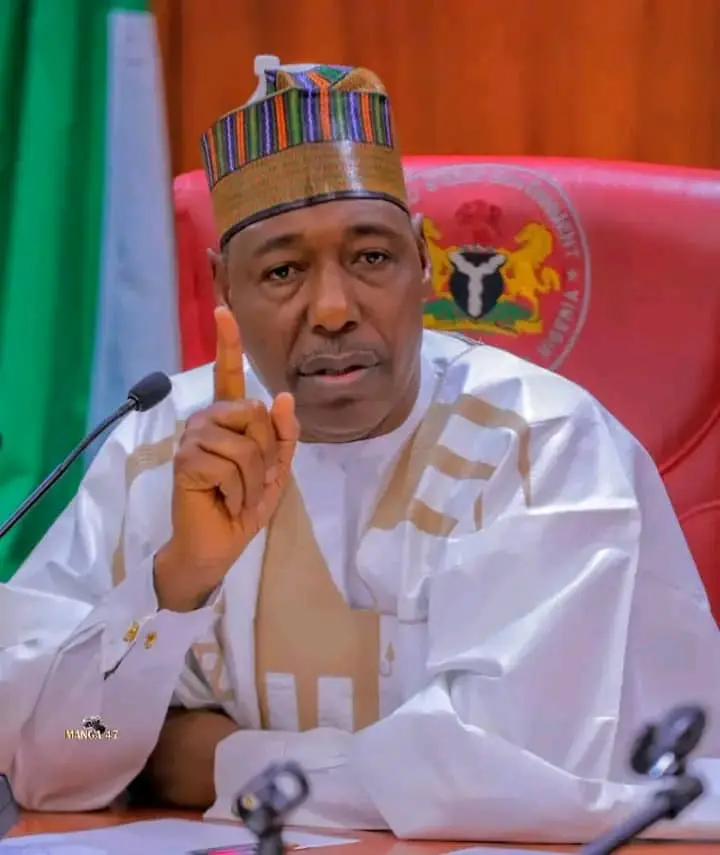In a landmark initiative that reverberates across the nation, President Bola Tinubu has steered the wheels of progress towards bolstering food and nutrition security in Nigeria. At the core of his Renewed Hope Agenda lies an unwavering commitment to elevate the nation’s agricultural landscape to unprecedented heights.
Addressing the 2023 edition of the Nigeria Nutrition Week in Abuja, Minister of Budget and Economic Planning, Atiku Bagudu, echoed the resounding dedication of President Tinubu’s administration to implement a multi-faceted approach to fortify food security. The comprehensive strategy encompasses sustainable agricultural practices, climate-smart technologies, and social protection programs, charting a new course towards a more secure and resilient food ecosystem.
Amidst the gathering, Bagudu emphasized the imperative need for adaptation and mitigation strategies to safeguard the nation’s food systems and enrich the nutritional well-being of its populace. Highlighting Nigeria’s pivotal role at COP28 in Dubai, he underscored the government’s prioritization of developing and adopting climate-smart agricultural practices. The envisioned measures span from the promotion of resilient crop varieties and efficient irrigation systems to the implementation of agroforestry and sustainable land management techniques, all meticulously designed to fortify agricultural systems and ensure a consistent supply of nutritious sustenance for the population at large.
Undeniably, the challenges posed by climate change loom large, casting a formidable shadow over agricultural systems. However, Bagudu exuded optimism, affirming that collective action and unyielding commitment can surmount these challenges and pave the way for a more resilient future. His sentiment resonated with the recognition that Nigeria’s livelihoods, food security, and economic growth hinge heavily on agriculture. Yet, the specter of climate change manifests in unpredictable rainfall patterns, intensified droughts and floods, and the proliferation of pests and diseases, all of which imperil crop yields, livestock productivity, and overall food availability, casting a pall over the nutritional welfare of vulnerable groups, particularly women and children.
Moreover, Bagudu articulated the government’s intent to embrace the recommendations elucidated during COP28, underscoring Nigeria’s unwavering resolve to mitigate the harrowing effects of climate change. Expounding on this trajectory, Isiah Ude, the Project Communication Officer of FHI 360 Alive and Thrive, underscored the influential role of social media in advocating for healthier eating habits, heralding it as a potent tool to nurture healthier choices and empower communities towards a brighter, healthier future for Nigeria.
Moreover, Chito Nelson, the Head of the Food and Nutrition Division at the Department of Social Development, Ministry of Budget and Economic Planning, shed light on the detrimental impact of climate change on food and nutrition security. She expounded on the repercussions, highlighting reduced crop yields, compromised nutrient quality, disrupted water and sanitation, and the looming specter of hunger and malnutrition. Additionally, Christiana Yunanah delineated the challenges impeding Nigeria’s Food systems pathways, citing malnutrition, insufficient infrastructure, limited access to finance, and the scourge of food waste and post-harvest losses.
In response, she advocated for strategic investment in technology to curtail food waste, genetic profiling, and continuous monitoring and evaluation to fortify food system security. She cogently underscored the dire necessity for stakeholder engagement and the swift implementation of the food systems transformation strategy to catalyze improvements in food system security countrywide.
Lastly, Chris Odhomi, representing the Ministry of Information and National Orientation, (National food and media team), expounded upon the pivotal role of the media, delineating how the training would equip journalists with crucial skills in solution journalism and content creation to propel the agenda of promoting food and nutrition security.
In essence, the echoes resounding from the 2023 edition of the Nigeria Nutrition Week reverberate with a resounding call to action, heralding an era of transformative change under the visionary leadership of President Bola Tinubu. As the nation charts a steadfast course towards bolstering food and nutrition security, the convergence of unwavering dedication, strategic foresight, and collaborative endeavor illuminates a beacon of hope on the horizon.
NAN



